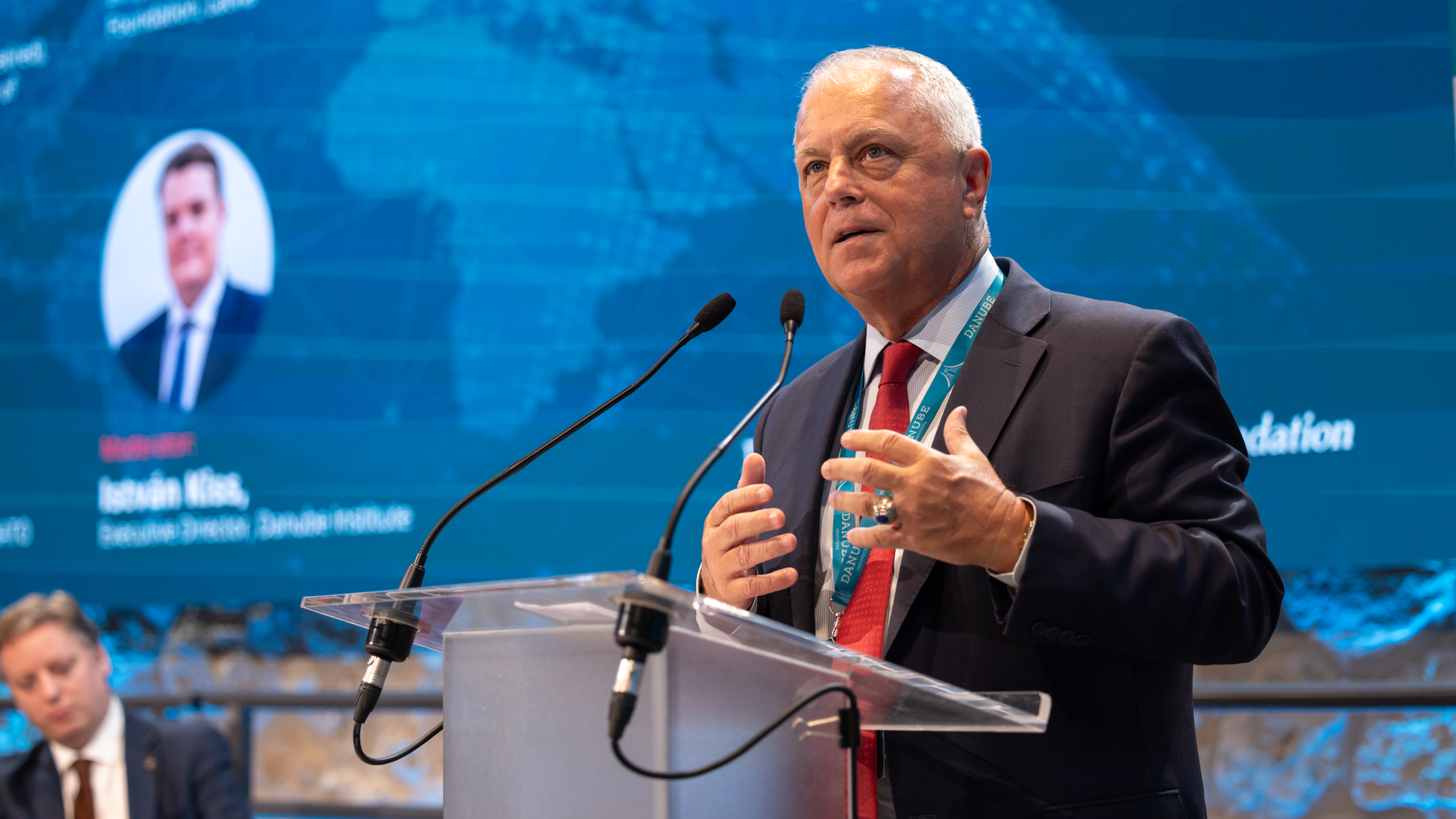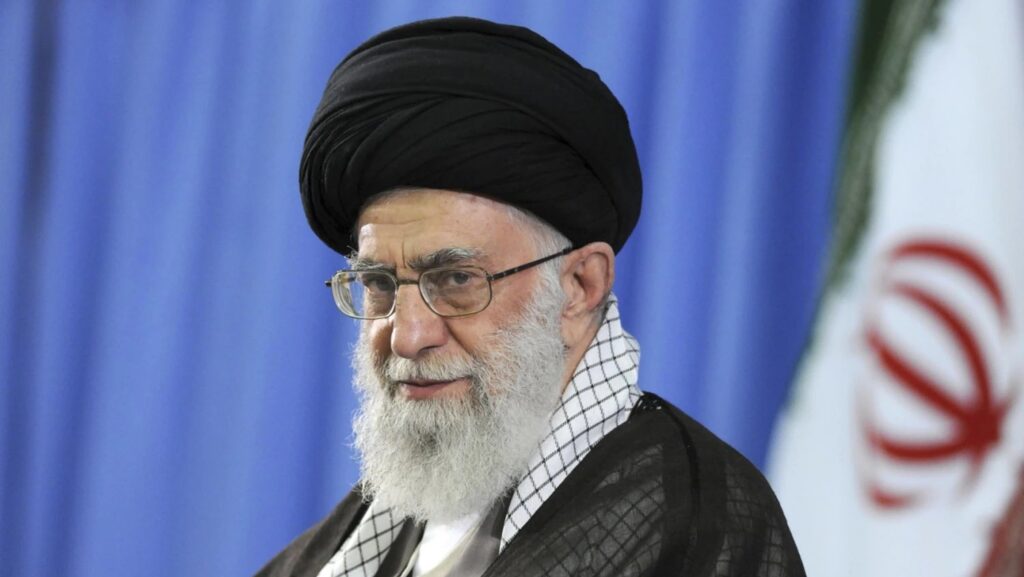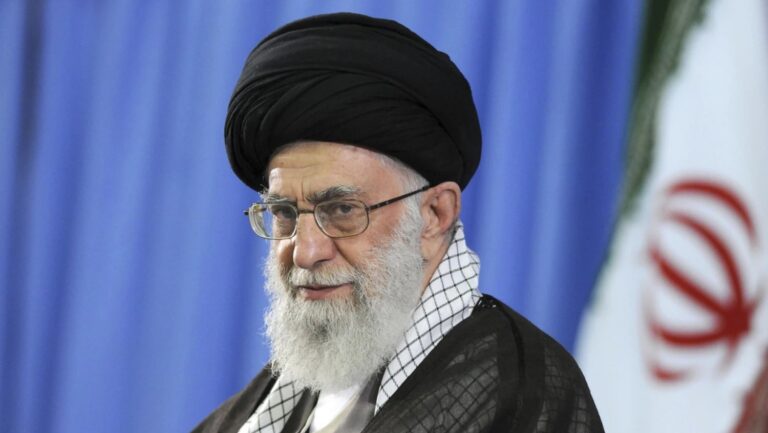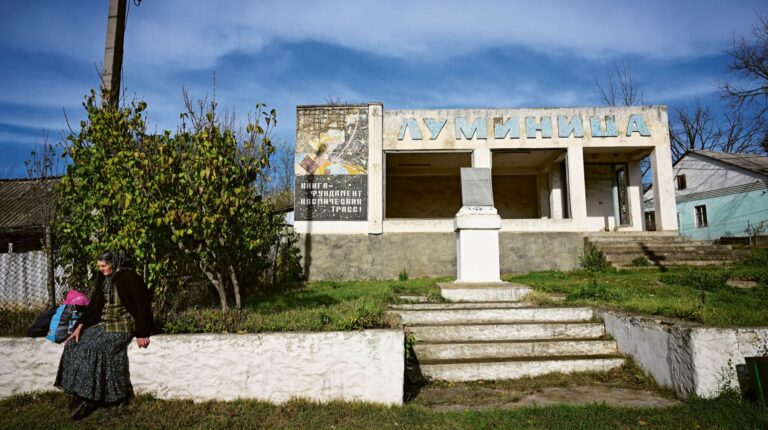The final panel of the Fourth Danube Institute – The Heritage Foundation Geopolitical Summit was all about the armed forces. More specifically, the NATO military alliance and what its possible future under a second Trump administration would look like.
Former Secretary of Veterans Affairs under the first Trump Administration Robert Wilkie kicked things off with a keynote speech.
In it, Secretary Wilkie lamented the rise of anti-semitism in the United States, including his home town of New Orleans, Louisiana, in the wake of the Hamas–Israel war. He stated that the first POTUS, George Washington, would be very disappointed, as he wrote a letter to the Touro Synagogue during his first term, denouncing discrimination against the Jewish people of America.
‘To lead, you have to believe in the country you serve’
He then pointed out that after World War I, just like after the Cold War, defence budgets of major countries were cut; something the Biden–Harris administration has also been doing. US military spending has not been this low compared to the GDP since the Calvin Coolidge administration in the 1920s. The speaker also accused President Obama and Biden of appeasing the new ‘Axis of Evil’, as he referred to the countries of China, Russia, and Iran; similarly to how Western powers appeased Hitler in the lead-up to World War II.
Secretary Wilkie also lamented the spread of the woke ideology, which has found its subversive way into the US Military as well under the current administration. ‘To lead, you have to believe in the country you serve,’ he proclaimed.
Danube Institute on X (formerly Twitter): “🌎🇺🇸 @SecWilkie at the 4th Geopolitical Summit, co-hosted by the 🇭🇺 @InstituteDanube and the 🇺🇸@Heritage: pic.twitter.com/S5kJ2xcJ4S / X”
🌎🇺🇸 @SecWilkie at the 4th Geopolitical Summit, co-hosted by the 🇭🇺 @InstituteDanube and the 🇺🇸@Heritage: pic.twitter.com/S5kJ2xcJ4S
Next up, Retired Brigadier General in the US Army Antony J Tata; Director of the Baltic Security Foundation Otto Tabuns; Programme Director and co-founder of the Swedish think tank Oikos Arvid Hallén; President of the information warfare firm WorldStrat Jim Hanson; and Ambassador István Balogh, Permanent Representative of Hungary to NATO convened for a panel discussion. Danube Institute Executive Director István Kiss assumed the role of the moderator.
General Tata told a personal anecdote. During the Balkan Wars, he was deployed to Hungary as a paratrooper. Four military planes were supposed to go to Taszár Air Field in Southern Hungary, where NATO forces (Hungary was not yet a member at the time) had special permission to land, but weather conditions did not allow landing there. Tata was the highest ranking officer on board, so he made the call to instead touch down in Budapest with a fleet of four planes. However, after landing, he was informed that over three military planes landing on Hungarian soil without permission was technically considered an invasion.
He then moved on to more current topics. He professed that ‘NATO will be stronger under a second Trump administration,’ and opined that President Trump may require a 4 per cent GDP contribution from member states, instead of the current 2. He also pointed out that, unlike under Presidents Bush, Obama, and Biden, President Putin of Russia made no major advancement under President Trump.
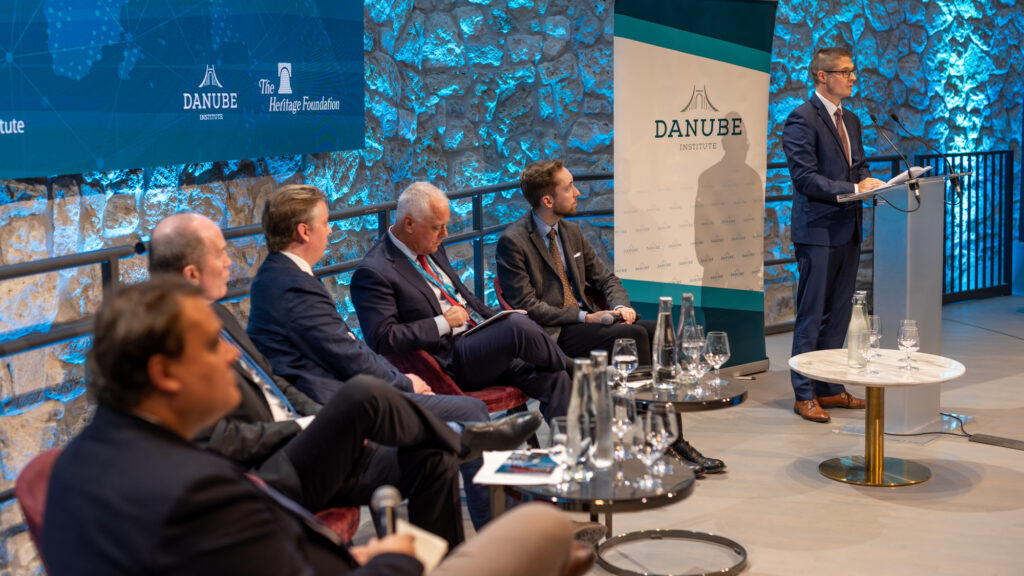
Mr Hanson drew attention to the lesser-known Article 2 of the NATO treaty, per which member states should ‘contribute toward the further development of peaceful and friendly international relations by strengthening their free institutions’. The speaker believes that some members of the alliance have violated this article in their pursuit of censorship and redistricting free speech. He gave the example of the EU Commission threatening Elon Musk’s social media company X with fines after he announced that he was going to interview President Trump. Mr Hanson also talked about how there is a high level of scepticism among Trump voters towards the necessity of the ‘forever wars’, as former Congresswoman Tulsi Gabbard likes to refer to the United States’ various military engagements abroad.
Mr Hallén called on Germany, one of the biggest national economies in the EU, to spend more on its defence and build up its armed forces. He also cited NATO’’s first Secretary General Hastings Lionel Ismay, who said that NATO’s mission is ‘to keep the Russians out, the Americans in, and the Germans down.’ He believes the first two parts of the thesis still hold true today. Meanwhile, Ambassador Balogh assured the audience that ‘NATO’s future is secure,’ as its military power has only increased in significance in recent years. He also lauded the fact that now over two-thirds, 23 out of the 32 member states have fulfilled their pledge of spending 2 per cent of their annual GDP on defence. If President Trump gets into office, there will be a lot of pressure on the remaining nine states to step up as well.
Related articles:

